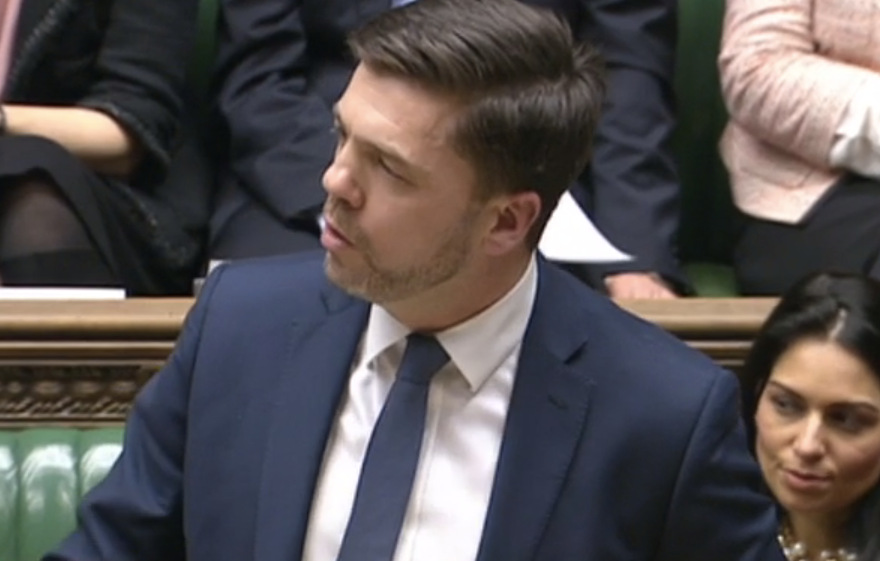Your support helps us to tell the story
From reproductive rights to climate change to Big Tech, The Independent is on the ground when the story is developing. Whether it's investigating the financials of Elon Musk's pro-Trump PAC or producing our latest documentary, 'The A Word', which shines a light on the American women fighting for reproductive rights, we know how important it is to parse out the facts from the messaging.
At such a critical moment in US history, we need reporters on the ground. Your donation allows us to keep sending journalists to speak to both sides of the story.
The Independent is trusted by Americans across the entire political spectrum. And unlike many other quality news outlets, we choose not to lock Americans out of our reporting and analysis with paywalls. We believe quality journalism should be available to everyone, paid for by those who can afford it.
Your support makes all the difference.The Government will make no further cuts to the social security budget beyond those already legislated for, ministers have said.
Stephen Crabb, the new Work and Pensions Secretary, confirmed that cuts to the Personal Independence Payment would not go ahead – but also ruled out making any more broader welfare cuts.
The Government pledged to make £12 billion in welfare cuts before the general election as part of its plan to meet a self-imposed spending rule – and has already legislated to bring in significant cuts.
Cuts already legislated for that are yet to come in include £5 savings from less generous Universal Credit payments, cuts to the tax credit income disregard, and cuts to the Employemt and Support Allowance disability benefit.
“I can tell the House that we will not be going ahead with the changes to PIP that were put forward,” Mr Crabb said in a statement to the Hosue of Commons.

“I am absolutely clear that a passionate and fair welfare system should not just be about numbers – behind every statistic there is a human being and perhaps sometimes in government we forget that.
“I can also confirm that after discussing this issue over the weekend with the Prime Minister and the Chancellor we have no further plans to make welfare savings beyond the very substantial savings legislated for by parliament two weeks ago – which we will not focus on implementing.”
The new Secretary of State, who replaced Iain Duncan Smith, said he believed the Government’s total welfare spending cap was right in “principle” but that it would be reviewed at the Autumn Statement.
Mr Duncan Smith resigned on Friday night, warning that the Government was closing the budget deficit by targeting the most vulnerable in society.
Labour’s Owen Smith said he welcomed the “vital and wholly inevitable” U-turn on the cuts to PIP.
“Never again can he and this Government claim they are all in it together – never again can he claim to lead a One Nation government,” he said.
He noted that the Government had already passed sharp cuts to the ESA WRAG – another disability benefits – as well as having kept the bedroom tax.
Mr Smith said a House of Commons Library study had found spending on disabled people had fallen by six per cent under the Conservatives, whilst it increased by 60 per cent under Labour.
Mr Crabb accused Mr Smith of having a “pantomime approach”.
Charities including learning disability charity Mencap and Sense, the national deafblind charity, welcomed the U-turn on PIP but called for more to be done to help disabled people.
Child Poverty Action Group Policy Director Alison Garnham said: “Stephen Crabb is to be congratulated for halting the PIP cuts and saying that there will be no more social security cuts this Parliament .
“These past few days have exposed the huge gap between lofty rhetoric on poverty and the cold reality that vulnerable families – disabled, low paid, those with children - have repeatedly faced cuts in much-needed help while the better off are the overwhelming beneficiaries of hugely expensive cuts to the personal tax allowance, which is being mis-sold as a pro-poor policy. This has been the case since 2010.
“Ministers must now consult on the next steps for welfare reform to ensure that the lowest income households do not continue to subsidise gains for better off groups.
“Originally Universal Credit had big poverty-fighting potential but again and again the Treasury went after it, degrading its capacity to help low earners. The most recent Summer Budget cuts to work allowances - the amount people can earn before their Universal Credit starts to be withdrawn - will make it harder for low income families to get better off by earning more, hitting the incomes of working families in much the same way as the now abandoned plans to cut the thresholds for tax credits. Very soon, a rethink of Universal Credit cuts must be a priority.”

Join our commenting forum
Join thought-provoking conversations, follow other Independent readers and see their replies
Comments